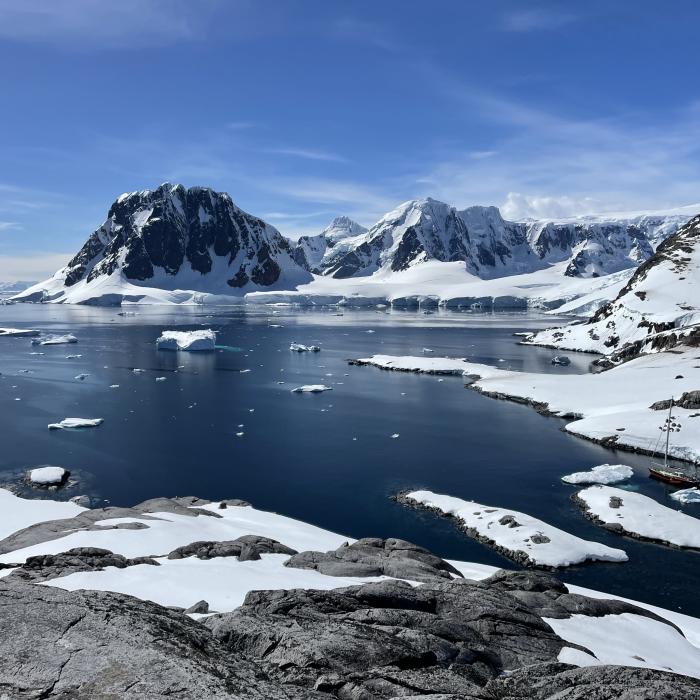Within the Department, geosciences research focuses on the physical, chemical, and biological processes that converge near Earth’s surface. This varied work connects the solid Earth with the hydrosphere, cryosphere, atmosphere and biosphere. Our areas of active research include: geomorphology, from mountains and coasts to seascapes and planetary surfaces; the dynamics and deposits of glaciers, rivers, coastal and marine environments; regional and global impacts of climate change; Earth history from formation to present; low-temperature and isotope geochemistry; and organic geochemistry and biogeochemistry. Our teaching and mentorship prepare students and postdoctoral associates for careers in fundamental research, government, education, environmental consulting and law, community planning, resource management, and other disciplines that rely on quantitative and rigorous understanding of Earth’s environments.
Biogeoscience is a systems approach to solving complex environmental issues. Researchers can better understand ecosystems by studying interdisciplinary processes such as nutrient cycling, ecological population dynamics, isotope geochemistry, watershed hydrology and many others. Current research topics include terrestrial carbon influence on lake ecosystems, mercury and carbon dynamics in streams, nitrogen fluxes in low-relief watersheds, recovery from acid deposition in mountain streams, nitrogen budgets on permaculture farms, and early warnings indicators of ecosystem regime shifts. Field sites include Shenandoah National Park (SWAS-VTSS), University of Notre Dame-Environmental Research Center, the Pace Estate, and Timbercreek Organics.
Research on coastal systems in the department covers a broad range of disciplines and environments. Studied systems include seagrass meadows, coral reefs, mangrove forests, salt marshes and barrier islands. Our diverse research groups study the ecology, hydrology and geomorphology of these various systems. Current research focuses include plant genetics, carbon storage, sea level rise, flow regimes, aquaculture, primary production and metabolism, invasive species and more. This research takes place in many locations, including Virginia’s Eastern Shore, Florida and the Caribbean, Israel, Panama, Hawaii and Mexico.
Investigating the processes that shape landscapes on Earth and other planets, focusing on rivers. Our research uses diverse approaches from remote sensing, numerical modeling, laboratory experiments and field work.
Research on modern and ancient glaciers of the northern and southern hemispheres, with an particular emphasis on the Antarctic Ice Sheet, aims to elucidate changes in glaciers and the processes that cause those changes.
Soils →
Soil research at the nexus of geologic materials, plants, animals, environmental toxins, and society. Our field sites span the Appalachian Mountains from Virginia to New Hampshire!



